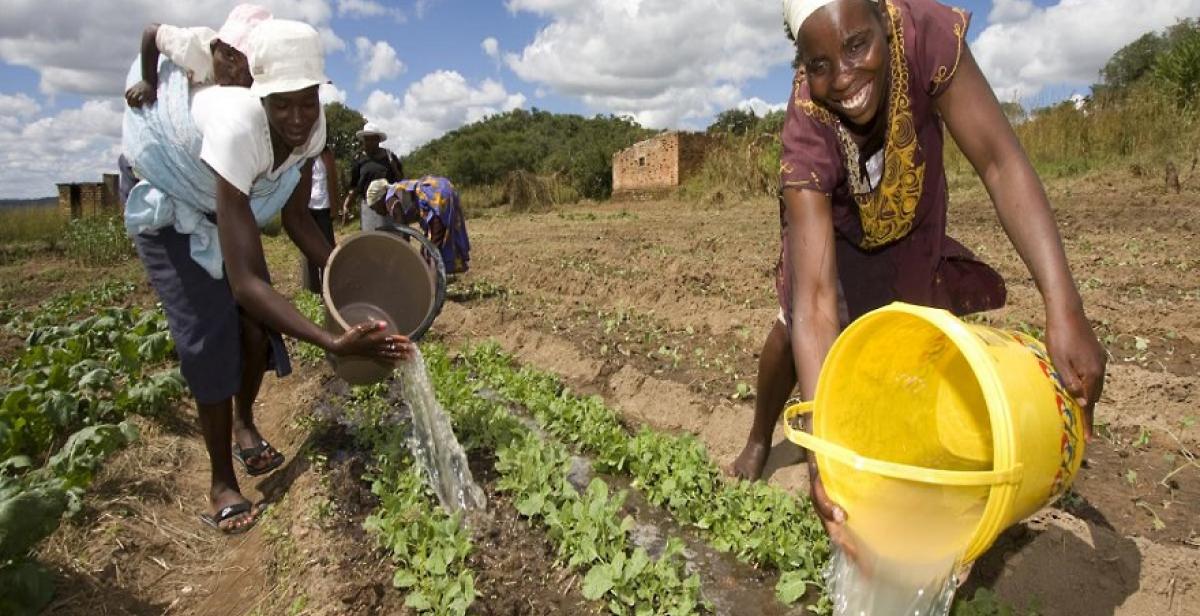As the global power and reach of multinational corporations grows, so too does their impact on the human rights of workers and community members affected by their operations. This has led to an increased global momentum to hold multinational corporations to account and to ensure they respect human rights.
As a result, the UN Guiding Principles on Business and Human Rights (UNGPs) were endorsed by the Human Rights Council in 2011. The principles are the first to provide a global standard for preventing and addressing the risk of adverse human rights impacts linked to business activity. They have, however, failed to address gender equality as a critical cross-cutting issue.
Their implementation is also proving challenging. There are few sanctions or effective enforcement mechanisms for companies that do not comply. Human rights continue to be neither respected nor protected at times, especially in cases where businesses operate in states that experience conflict or are fragile, such as those Progressio works in, and therefore characterised by weak rule of law and accountability mechanisms.
Progressio is particularly concerned about women’s rights in these contexts. This is because violations of women’s rights caused by entrenched gender discrimination are ‘normalised’ in everyday life and therefore invisible: they occur in every country in the world, cutting across economic, social, and political spheres. Organisations and institutions, including businesses, markets, and the laws and rules that govern them, reflect and reproduce this discrimination and the gendered power inequalities underpinning them. This potential to infringe upon women’s rights is exacerbated, if not proactively and explicitly addressed within government and corporate policies.
Specific areas of business operation where women’s rights are at risk include industries that affect women’s access to land and livelihoods. Women make up 70-80% of the world’s small scale farmers and are primarily responsible for providing food and water for their families. As such, they bear a disproportionate share of the social, economic, and environmental risks and costs when land is lost to land intensive investments, such as mining and large-scale agriculture. Here, women typically end up in the poorest paid jobs, if in any, and are excluded from community consultations. They are also rarely able to get adequate compensation.
Global supply chains, which are increasingly prevalent, employ large numbers of women in low paid, precarious jobs. For instance, 80% of the world’s garment workers are women. They commonly endure poor and hazardous working conditions and a lack of adequate safeguards as labour standards or human rights laws are rarely enforced.
The UK government has made a strong commitment to women’s rights in its development policies, but these are currently not strongly reflected in its Business and Human Rights commitments.
As argued in a recent briefing by the Gender and Development Network, written by Progressio and Action Aid with inputs from ABColombia, Christian Aid and the Latin American Mining Monitoring programme, the current review of the UK’s National Action Plan (NAP) for implementing the UNGPs offers a critical opportunity for the UK Government to fully integrate and prioritise gender equality and women’s rights which is largely missing from its current NAP.
This would greatly strengthen policy coherence across these areas. Vitally, it would also help ensure that UK companies operating overseas, as well as the wider trade and investment environment, go beyond the current ‘do no harm’ imperative to contribute towards the fulfilment of women’s human rights. This opportunity should not be missed and is particularly important given the increasing prominence of the private sector as an actor in development. The UK must prioritise human rights over economic interests, and put people before profit.
Written by Malou Schueller - Governance Policy and Advocacy Officer



